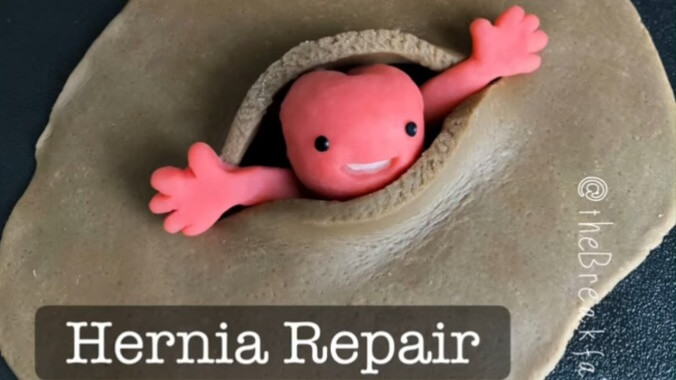Well, here's something new: Play-Doh surgery videos

The human body is complex and the modern medical techniques used to keep it in working order are so sophisticated that they often seem miraculous. Those techniques are also extremely fucking gross, which is why we simplify our disgusting organs into cute little symbols of love and abstract the horrors of surgery into network TV cadaver cakes and children’s boardgames about just how easy it is to accidentally kill someone undergoing an operation.
Following in this grand tradition of trying to de-nastify the gnarly stuff surgeons do to us, a doctor and mom who goes by The Breakfasteur on YouTube has been showing her son how to perform complicated procedures by using Play-Doh body parts.
The Breakfasteur’s recent video of a Play-Doh cesarean has been generating a lot of interest, and for good reason. The description explains that the video series’ ever present surgical assistant had just turned four and, to mark the occasion, his mom showed him how to deliver a baby via C-section using lumps of dough. A pair of hands that make Doogie Howser’s seem gnarled and old in comparison enter the frame while a voice reminds the child doctor to pinch the Play-Doh stomach to “make sure the anesthesia worked.” The kid then makes “a transverse incision,” pulls apart layers of muscles with pudgy little fingers, and giggles with joy as a baby Spider-Man doll is born. Of course, this isn’t just fun and games. The placenta must also be delivered next, and it is.
